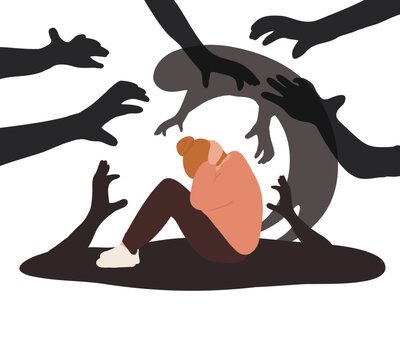What is Cancer PTSD?
Facing a cancer diagnosis and all the change that follows can be daunting. We were never taught how to process and cope with any life-threatening illness, especially cancer.
The result of being so unprepared for this physical, mental, and emotional injury is Cancer Post Traumatic Stress Disorder, better known as PTSD.
What is Cancer PTSD?
PTSD is a mental health condition triggered by a terrifying event — either experiencing it or witnessing it (Mayo Clinic). Think of PTSD as an anxiety disorder that develops in reaction to physical injury or severe mental or emotional distress, such as life-threatening events. All of the above are present in cancer treatment. One main symptom of Cancer PTSD is living in a heightened state of awareness about every ache and pain, fearing recurrence, and anticipating the worst.
Talk Therapy for Cancer
According to clients who’ve been seeing a therapist for years, conventional therapy offers little or no relief. This kind of therapy primarily engages the logical part of our mind (conscious mind) and not the emotional one (subconscious mind). Read More Here.
When fear, despair, shock, and overwhelm hijack our experience, it’s almost impossible to contemplate being on the other side of treatment. But if we want to rebuild our lives, we should acknowledge the injury we suffered and be prepared to address it.
The (Limited) Blessings of Medicine
More people survive their cancer diagnosis today than at any other time in history due to the miracles of medicine. This kind of blessing forces us to look beyond treatment. We don’t simply want to survive cancer; we want to thrive during and after treatment.
Having worked with and supported cancer patients for over twenty years, I know cancer PTSD is a real challenge for many. Treatment may have ended, but living in a body we feel betrayed by; means living in conflict, in a constant state of hypervigilance.
Before a Cancer Diagnosis
Before diagnosis and treatment, yes, there were plenty of aches and pains in our bodies, but we never gave them too much attention. Now, however, the slightest unpleasant sensation in our body can send us spiraling down into panic. So, what do we do? We take a more goal-oriented approach to address the root cause of Cancer PTSD. CLICK HERE for more info on a couple of ways to do that.
Now, that’s just dealing with our body; what about dealing with our mind and emotions? Cancer PTSD isn’t exclusive to either the body or the mind. It takes over our whole self.
Many of my clients’ first response to hearing those three powerful words, “You Have Cancer,” was emotional. They describe a state of shock and feeling numb. The numbness they felt defused the moment’s intensity, but its effect took hold and changed us.
If you understand that and want to include more in your treatment plan than what simply happens at your doctor’s office, these programs may be for you. CLICK HERE for more details.

